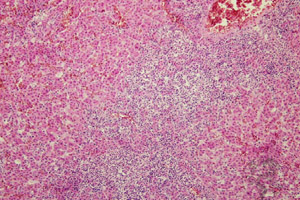Poultry award highlights Marek’s disease research

The “9th International Symposium on Marek’s Disease and Avian Herpesviruses” took place at the “Freie Universität Berlin” in June 2012. Some 200 scientists from more than 20 countries were present. One of the highlights was the presentation of the “1st Lohmann & K.A. Schat Scientific Award” aiming to recognise excellent performance by young researchers in the field of MDV.
Even in 2013 – more than 40 years after the first vaccine became available – Marek’s disease is still an important concern in the poultry industry. Outbreaks in commercial poultry flocks still pose a huge danger and an enormous commercial risk. It seems that using MD vaccines created a vicious circle: the more vaccination takes place, the more virulent the current field strains become – resulting in the demand for vaccines with steadily increasing efficacy and thus, researchers are working flat out to better understand the disease and to develop such improved vaccines.
The award was initiated two years ago by Prof Karel Schat, who back in the 1970s isolated the very same MDV strain SB-1 that is still used across the globe as vaccine today. His great wish is to motivate young scientists to orient their research and future career towards MDV. Lohmann Animal Health, a well-known producer of poultry vaccines, is in complete agreement with Prof Schat’s intentions and has pledged support.
The jury – Dr. Rahaus of Lohmann Animal Health, Prof Schat and Prof Parcells of the University of Delaware – was faced with a hard task as the quality was so high that it was very difficult to choose a winner. In the end the first prize was awarded to Julia Schermuly from the Institute for Animal Physiology of the Ludwig-Maximilians University, Munich, for her development of a new method to infect B cell cultures to previously unattained percentages allowing examining in detail molecular events inside these cells after infection with MDV. This approach might be useful to investigate future vaccine candidates.
The second prize went to Annachiara Greco from the Institute of Virology of the FU Berlin. Greco is working on the mode of operation of telomeric repeats in the genome of the virus, which play a role in tumour development. Viruses with modified telomeric repeats led to reduced tumour formation in chickens and might be candidates for new vaccines. In addition, a travel award was given to Nicole Bance of the Simon Fraser University in Canada who succeeded in inserting genes for fluorescent proteins into the MDV genome allowing not only to visualise the path of the virus through the cell but also to differentiate the state of the virus as lytic or latent. This way of modifying MDV is an excellent tool for the research and development of new vaccines.












